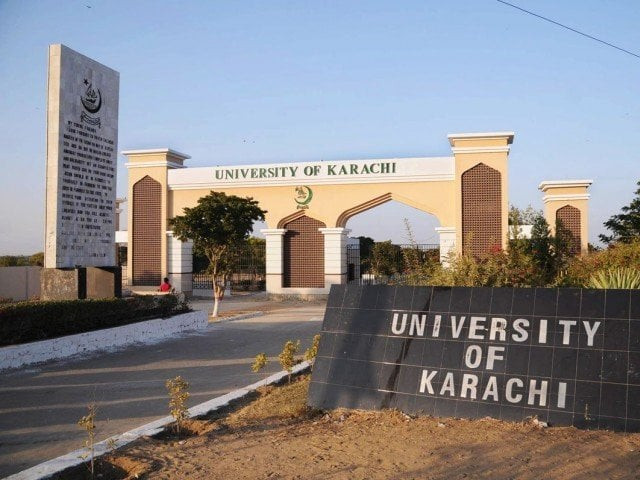Sindh’s largest public varsity set to increase fees
Increment in fees is inevitable, given the education budget for the next year, says KU VC

PHOTO: FILE
According to KU Vice Chancellor Professor Khalid Iraqi, the increment in fees is unavoidable because of the lack of funds in the current budget and the university’s existing financial crisis.
He claimed that the varsity typically receives funds 25% less than the amount required by it. And this year, the federal Higher Education Commission (HEC) has only been given a nominal increase in the amount allocated to it, as compared to previous years, he said, adding that this will inevitably affect the amount given to KU by the federal HEC. This will affect the university’s funding and students’ fees will have to be increased, said Prof Iraqi.
Karachi University announces admissions schedule
Speaking to The Express Tribune, Prof Iraqi said that a university has only two means of increasing its financial inflow, other than the funding it receives from the federal and provincial governments. It can either carry out commercial activities or increase the students’ fees. “However, as per the Supreme Court’s orders, no university can be used for commercial activities, but KU’s only resource is the large amount of land it has,” said the VC, adding that since the premises cannot be used for commercial activities, KU’s only option is to increase the students’ fees. “The extent to which the fees can be increased has to be considered”.
KU’s funding
KU has three financial resources. It receives an annual grant of Rs2b from the federal HEC, it is allocated some funds from the Sindh department of universities and boards each year, and it collects fees from its students. The varsity typically manages to collect Rs5b each year from these three resources but its annual costs come to around Rs7 billion to Rs7.5 billion. Hence, the varsity has been facing a budget deficit for some time now.
Each year, KU hopes to receive increased funding from the federal and provincial governments in order to fix this deficit.
This year, federal HEC Chairperson Tariq Banuri demanded for around Rs109 billion to be allocated to the commission but only Rs59 billion was allocated in the federal budget. In light of this, KU does not expect an increase in the Rs2b grant it typically receives from the commission.
Meanwhile, the Sindh government has allocated Rs10.5 billion to the department of universities and boards. The amount of the grant KU will receive from the provincial government is yet to be announced.
Distressed VC
“I believe that everywhere around the world, public universities are the responsibility of the government and it has to support them,” said Prof Iraqi. He added that the varsity’s performance would be compromised when its funds are reduced. “On one hand they say the performance and ranking of universities should improve, but simultaneously, on the other hand there is a lack of financial resources,” claimed Prof Iraqi. “How is it possible then to improve the varsity’s performance?” he asked.
KU to offer scholarships to persons with disabilities
Besides, when researchers are unable to participate in international conferences because the varsity is unable to support this facility, their abilities and talents remain hidden from the international community, opined the VC. The varsity cannot provide this opportunity due to its limited funds and the world remains unaware of the modern research, theories, and developments taking place in our country, he said.
“I visited all of KU’s departments when I was appointed as the VC. I inquired from each department if there was a shortage of staff, or any difficulty,” said Prof Iraqi. He said that he took stock of the nature of the work done in each department and the reasons behind any delays occurring in the departments. “I have asked every department to tell me, and I will make more appointments to address the shortage of staff. I directed all departments to work efficiently, with coordination and cooperation among them, and achieve better, more positive results”.
Published in The Express Tribune, June 23rd, 2019.



















COMMENTS
Comments are moderated and generally will be posted if they are on-topic and not abusive.
For more information, please see our Comments FAQ